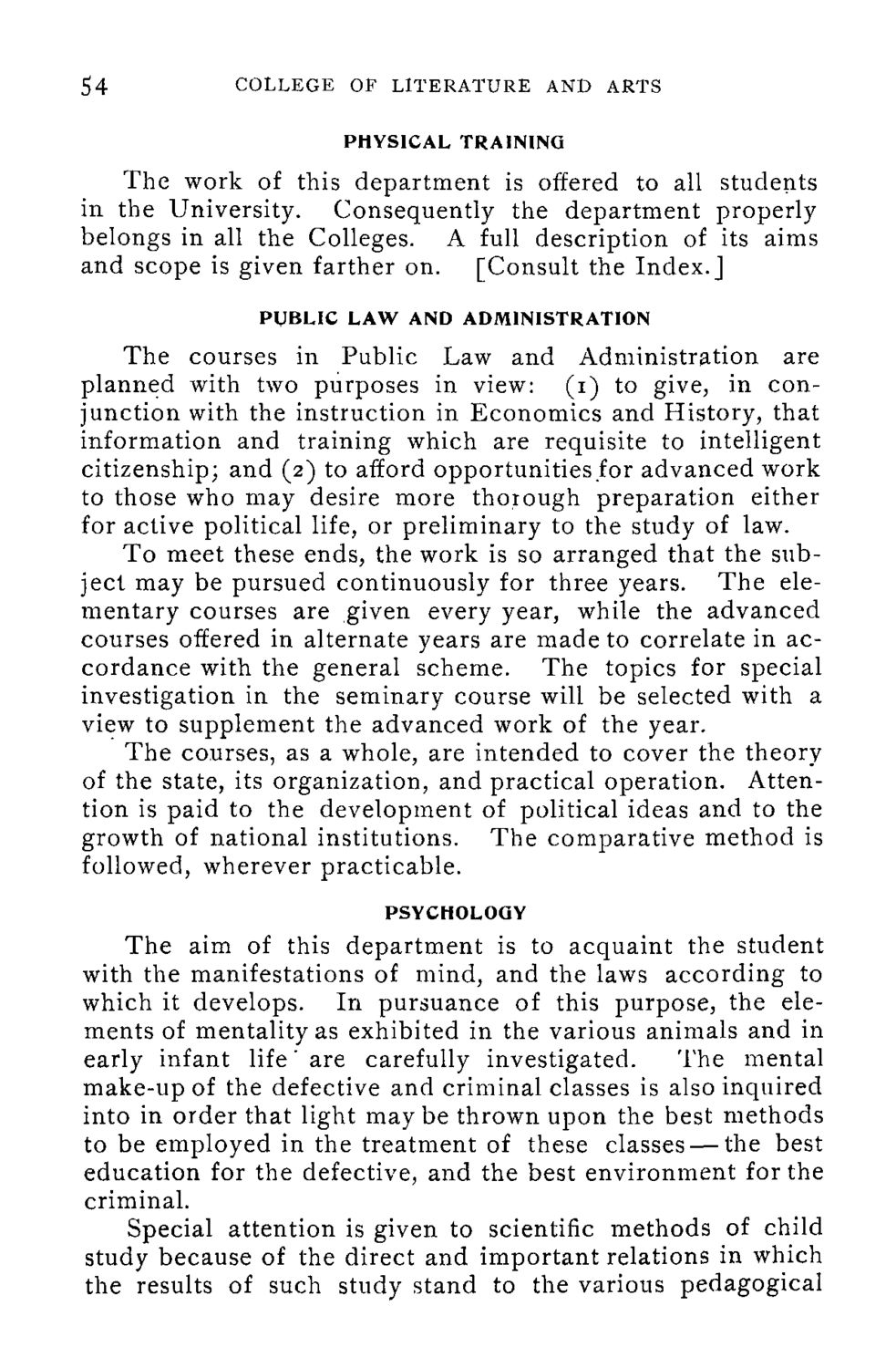Caption: Course Catalog - 1896-1897
This is a reduced-resolution page image for fast online browsing.

EXTRACTED TEXT FROM PAGE:
S4 COLLEGE OF LITERATURE AND ARTS PHYSICAL TRAINING The work of this department is offered to all students in the University. Consequently the department properly belongs in all the Colleges. A full description of its aims and scope is given farther on. [Consult the Index.] PUBLIC LAW AND ADMINISTRATION The courses in Public Law and Administration are planned with two purposes in view: (i) to give, in conjunction with the instruction in Economics and History, that information and training which are requisite to intelligent citizenship; and (2) to afford opportunities.for advanced work to those who may desire more thorough preparation either for active political life, or preliminary to the study of law. To meet these ends, the work is so arranged that the subject may be pursued continuously for three years. The elementary courses are given every year, while the advanced courses offered in alternate years are made to correlate in accordance with the general scheme. The topics for special investigation in the seminary course will be selected with a view to supplement the advanced work of the year. The courses, as a whole, are intended to cover the theory of the state, its organization, and practical operation. Attention is paid to the development of political ideas and to the growth of national institutions. The comparative method is followed, wherever practicable. PSYCHOLOGY The aim of this department is to acquaint the student with the manifestations of mind, and the laws according to which it develops. In pursuance of this purpose, the elements of mentality as exhibited in the various animals and in early infant life' are carefully investigated. The mental make-up of the defective and criminal classes is also inquired into in order that light maybe thrown upon the best methods to be employed in the treatment of these classes — the best education for the defective, and the best environment for the criminal. Special attention is given to scientific methods of child study because of the direct and important relations in which the results of such study stand to the various pedagogical
|